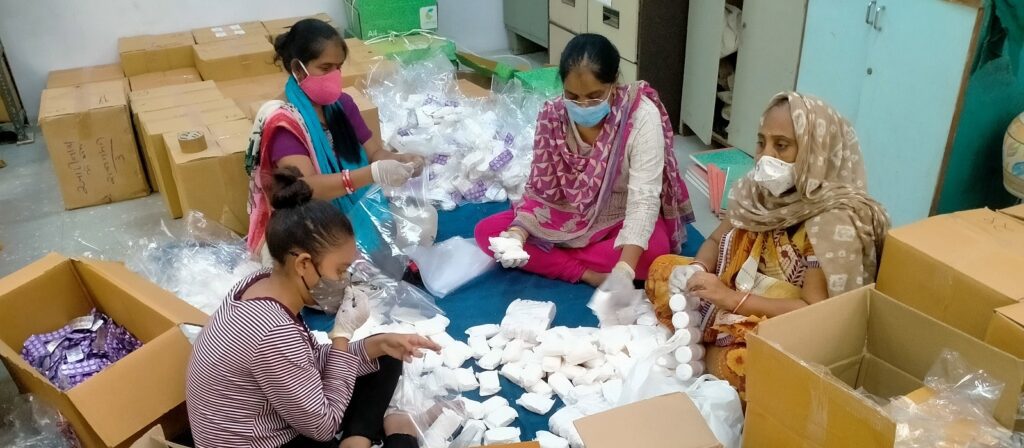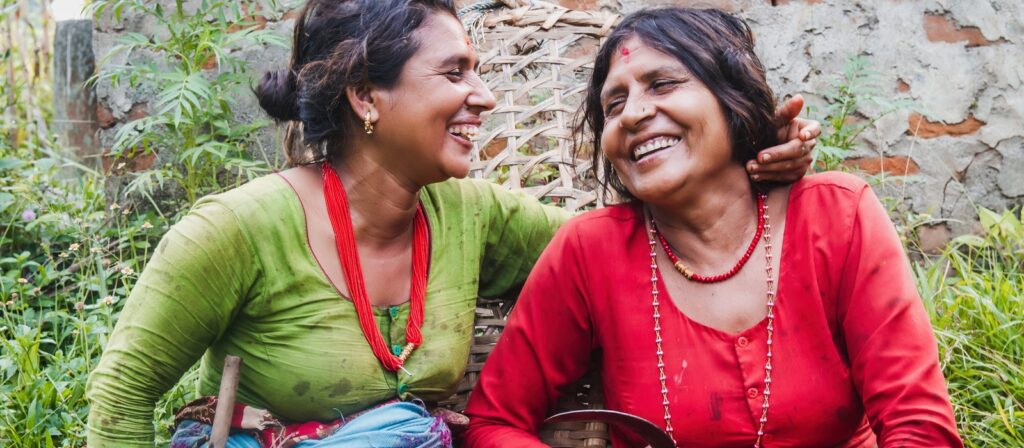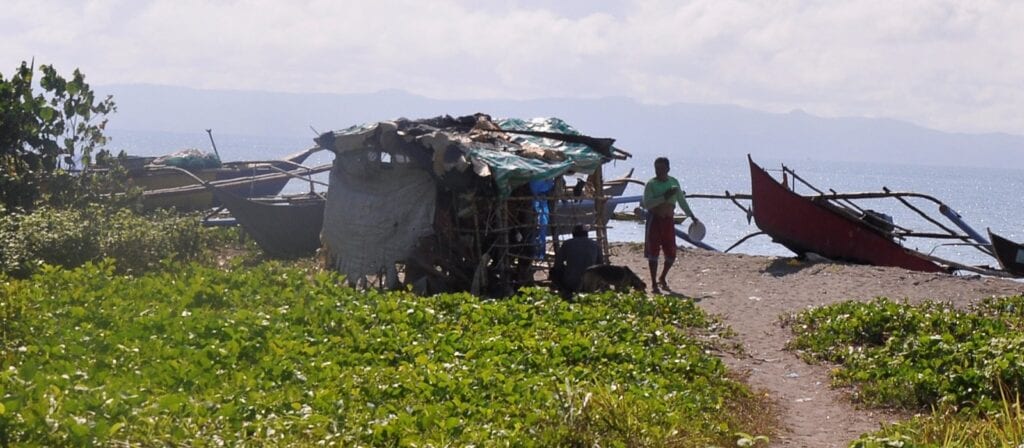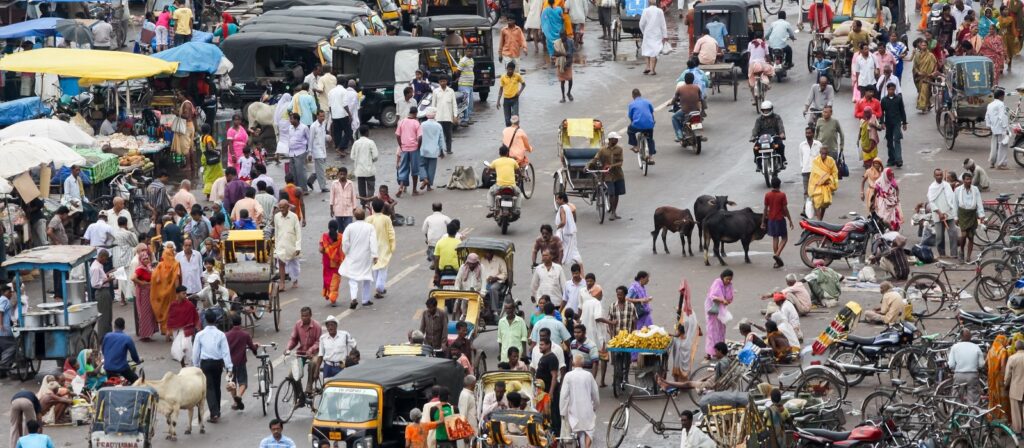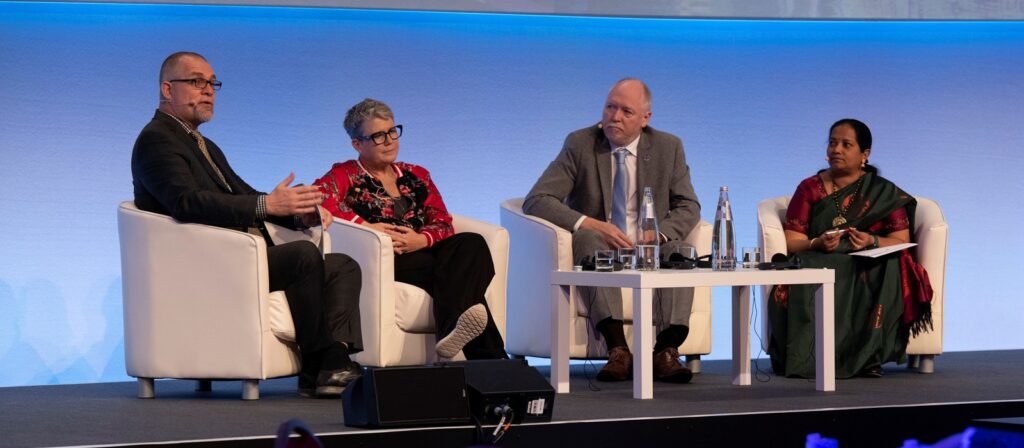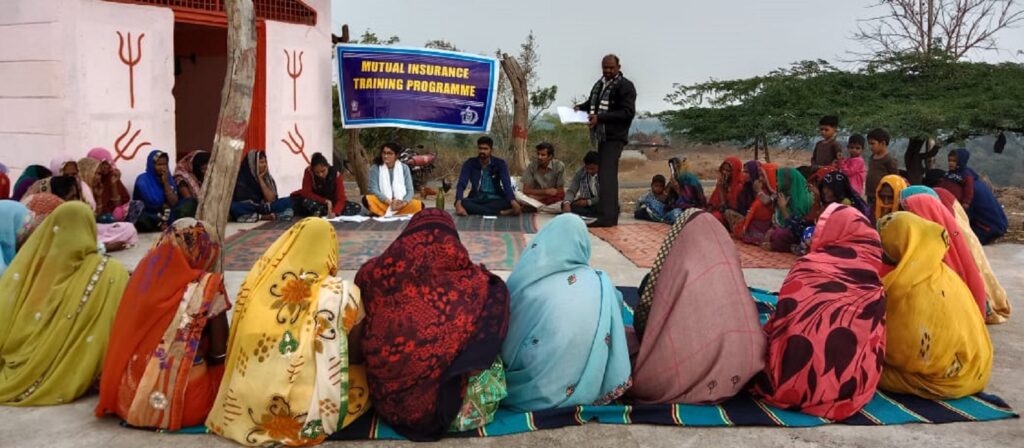About SEWA Cooperative Federation
SEWA Cooperative Federation is an Indian cooperative that provides insurance and financial services to informal workers, with a focus on women. It was formed 50 years ago in response to the lack of social and income security for the 94% of working women in India who work in the informal economy. These women have little social protection, such as insurance, sick leave, or maternity leave, due to few laws and regulations surrounding this type of workforce. SEWA organizes women through a joint strategy of unions and cooperatives, and has now formed 150 women’s cooperatives and collectives and promoted more than 5000 membership-based organizations. SEWA offers insurance to 2.1 million workers across 19 of India’s 29 states, but they have a long way to go in a country where 50% of workers are informal.
SEWA operates through a joint strategy of unions and cooperatives, promoting the formation of women’s cooperatives and collectives. They base their values and beliefs on the works of Mahatma Gandhi.
National Insurance VimoSEWA Cooperative
The lack of willingness by established banks in India to loan to women led to the formation of India’s first women’s cooperative bank, which expanded to offer life and non-life insurance through VimoSEWA.
VimoSEWA’s products, services, and insurance education are provided by a team of dedicated grassroots women who also benefit from this new livelihood, earning four or five times more than their previous income.
How SEWA operates
SEWA works with large insurance companies in a consultative, bottom-up manner to develop affordable products, and women go house to house to provide documents and “hand holding” services. The Covid-19 pandemic has led to the digitalisation of many of their processes, including selling products, claims processing, and communications.
SEWA’s operation links include SEWA Bank, Lok Swasthya for primary healthcare, their housing organization, and their health cooperative.
Overall, SEWA has made significant strides in providing insurance and financial services to India’s informal workers, particularly women. Despite facing challenges such as low insurance penetration, difficulties with government regulations, and the high capital requirement (USD 15 million) to become a fully-fledged insurer, SEWA has managed to become a financially viable cooperative and generate a surplus. They have also collaborated with the Indian government and produced a report with recommendations for the insurance sector to reach more poor and struggling members of India. SEWA’s approach has been recognized by the Indian parliament and has helped to provide health insurance coverage for 30-40% of informal workers in India. Their slow but organic growth and dedication to promoting cooperative values and beliefs, inspired by the works of Mahatma Gandhi, have made SEWA a unique and impactful organization in India.
Performance and impact
VimoSEWA and SEWA have had a significant impact on the lives of their members and the wider community in India. By providing insurance, income security, food security, and social protection, they have helped to improve the lives of many women and their families.
In terms of financial performance, it is impressive that VimoSEWA has become a financially viable cooperative, generating a surplus and providing dividends to members. The slow but steady growth of the organization, along with the addition of new partner organizations, suggests that it is on a sustainable path.
The collaboration with the Indian government to share their insurance techniques has also led to a government-wide health insurance program that covers a significant portion of informal workers in India. This recognition by the Indian parliament and the production of a report with recommendations for the insurance sector further highlights the impact and influence of VimoSEWA and SEWA.
Poverty reduction remains a significant challenge in India and that a country-wide integrated approach is needed to achieve the UN Sustainabable Development Goals (SDGs). Nonetheless, the work that VimoSEWA and SEWA are doing in providing income security, food security, and social protection is an important step towards addressing these issues and improving the lives of women and their families.
SEWA’s efforts towards income security, food security, and social security are important steps towards reducing poverty in India. By helping women gain a sense of income security through union and cooperative, village and community-based self-help groups, SEWA is empowering them to become self-reliant and contribute to the country’s economy. Similarly, by working with the government to ensure food reaches those in need and advocating for a national food security law, SEWA is helping to address food insecurity, which is a major cause of poverty in India.
Moreover, SEWA’s focus on providing childcare and ensuring children receive a good education is crucial for social security and social protection. By enabling women to join the workforce and providing for their families, SEWA is helping to break the cycle of poverty and creating a brighter future for the next generation.
Overall, SEWA’s approach of empowering women through collective action, education, and access to resources is a promising strategy for reducing poverty in India. While the road ahead is long and challenging, SEWA’s success in generating a surplus, partnering with the government, and receiving recognition from the Indian parliament is a testament to the effectiveness of their approach.
Key lessons from over the years
SEWA’s focus on organization and building solidarity is a valuable reminder of the power of collective action in achieving social and economic goals. The emphasis on co-creating and sustaining membership-based organizations, such as cooperatives, highlights the importance of empowering individuals and communities to take ownership of their own economic development. The emphasis on governance and democratic leadership is also a crucial reminder that true empowerment requires not just access to resources but also a voice in decision-making processes.
The emphasis on an integrated approach to poverty reduction and the importance of microinsurance and universal healthcare highlight the interconnected nature of social and economic challenges, and the need for comprehensive and systemic solutions. Finally, the focus on creating an enabling environment through partnerships, laws, and other measures is a reminder of the importance of creating a supportive ecosystem for social and economic development.
